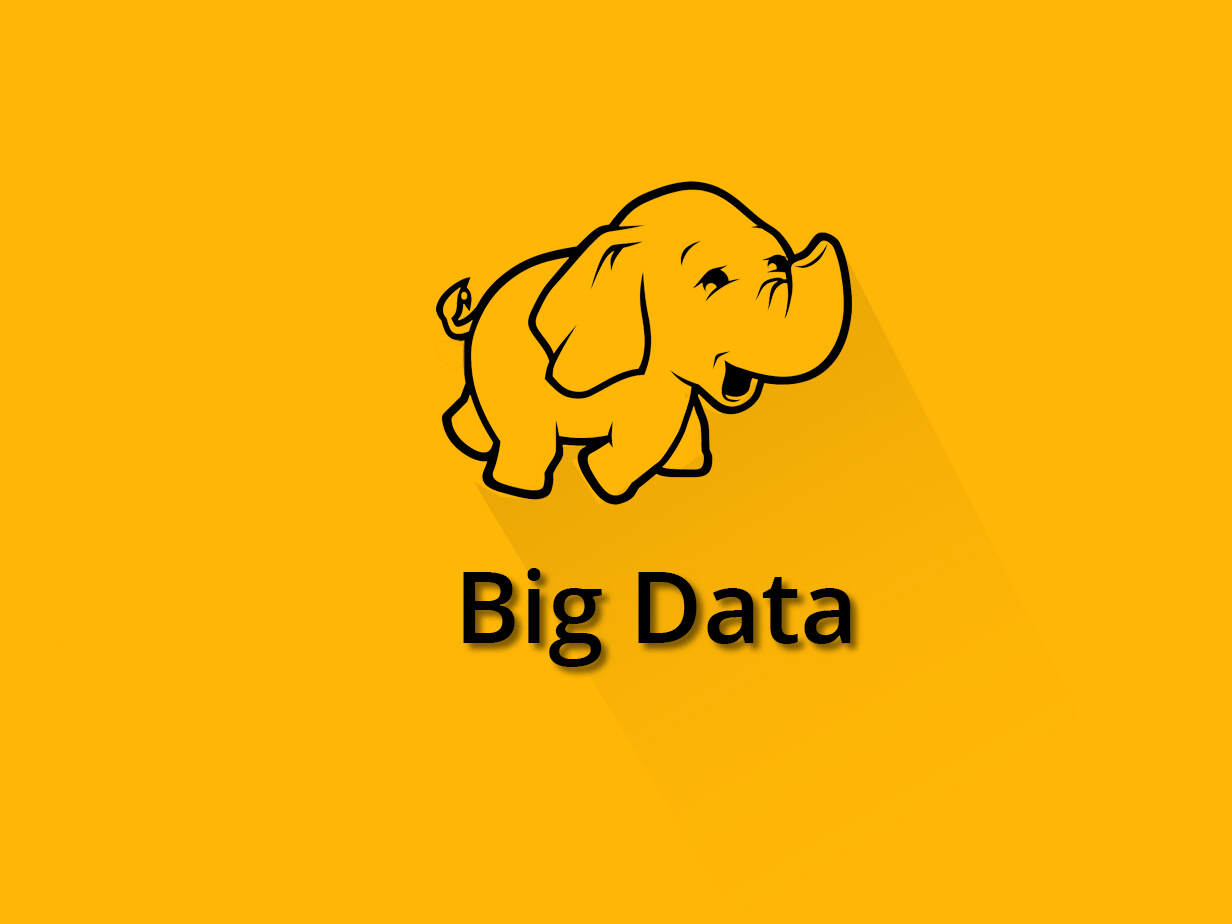Hadoop Big Data: The Landscape of Large-Scale Data Processing
In today’s world, we are witnessing an era of massive digital transformation where a staggering amount of data is being generated at an astonishing speed in various formats. This presents both opportunities and challenges for businesses, which are commonly referred to as “Big Data.” The sheer volume, velocity, and variety of data require new approaches and tools for its collection, storage, processing, analysis, and interpretation. Enterprises that can harness the potential of Big Data can gain valuable insights, make informed decisions, enhance customer experience, optimize operations, and drive innovation. However, managing Hadoop Big Data also poses significant technical, organizational, and ethical issues related to privacy, security, governance, and compliance.
Understanding Big Data and Its Challenges
Big Data refers to massive sets of information that cannot be efficiently processed using traditional data processing methods. Managing Big Data poses significant challenges due to the sheer volume, velocity, and variety of data involved. It encompasses structured data stored in databases and unstructured data generated by social media platforms and IoT devices. To deal with Big Data, specialized tools, and techniques are required to ensure proper management and analysis of the data.
Introduction to Hadoop Big Data
Hadoop is a powerful open-source framework that has emerged as a game-changer in the world of Big Data. It was initially created by Doug Cutting and Mike Cafarella in 2005 and has since then evolved into a comprehensive ecosystem that provides distributed storage and processing of massive datasets. With its ability to handle large volumes of data across multiple nodes, Hadoop has become an indispensable tool for organizations looking to extract valuable insights from their data.
Data Science: Unraveling the Power of Data
Key Components of the Hadoop Big Data Ecosystem
Hadoop Distributed File System (HDFS)
Hadoop Distributed File System (HDFS) is a crucial component of Hadoop that serves as the storage layer for big data processing. It is designed to handle massive volumes of data across a distributed network of commodity hardware. HDFS divides large files into smaller blocks and replicates them across multiple nodes for fault tolerance and high availability. This makes it easier to store, manage, and analyze big data by enabling data processing across multiple nodes in parallel.
Yet Another Resource Negotiator (YARN)
YARN, short for “Yet Another Resource Negotiator,” is a key component of the Hadoop architecture. It serves as the resource management layer responsible for allocating resources to various applications running on the cluster. One of its primary functions is to enable efficient utilization of cluster resources, which leads to improved scalability, fault tolerance, and overall system performance. By managing the resources of a Hadoop cluster, YARN allows multiple applications to run concurrently without interfering with each other, ensuring that all resources are used optimally.
MapReduce
MapReduce is a fundamental processing engine that lies at the heart of Hadoop. Its working principle is based on parallel processing, which means that it divides complex data processing tasks into smaller and more manageable chunks. These smaller tasks are then distributed across a cluster of servers for execution in parallel, enabling faster and more efficient data processing. Once completed, the results are consolidated into meaningful insights that can be used to derive useful conclusions and insights. This approach has been widely adopted across a range of industries and has proven to be a powerful tool for big data analytics.
Applications and Use Cases of Hadoop Big Data
Hadoop finds applications across various industries and use cases:
Data Warehousing
Hadoop is a widely used platform that organizations leverage for efficient storage and analysis of massive volumes of structured and unstructured data. This enables businesses to extract valuable insights for informed decision-making and gain a competitive edge through actionable business intelligence.
Predictive Analytics
Hadoop is a powerful tool that enables predictive analytics by utilizing advanced machine learning algorithms. It works by analyzing vast amounts of historical data, detecting patterns and trends, and making predictions for future outcomes. With Hadoop, businesses can gain valuable insights into their operations, make informed decisions, and stay ahead of the competition.
Advantages of Hadoop Big Data

Scalability and Flexibility
One of the notable features of Hadoop is its ability to handle increasing data volumes by horizontally scaling out the cluster without sacrificing performance. This is made possible by its distributed architecture, which ensures seamless scalability through the addition of more commodity hardware. This means that organizations can expand their data processing capabilities as their data grows, providing a cost-effective and efficient solution to big data management.
Cost-Effectiveness
Hadoop is a software framework that is designed for storing and processing large and complex datasets. One of the advantages of Hadoop is that it operates on commodity hardware, which makes it a cost-effective solution for organizations that have limited budgets. Additionally, Hadoop is an open-source framework, which means that it eliminates the need for expensive proprietary software licenses. This allows organizations to use Hadoop without having to worry about licensing fees, making it an attractive option for businesses of all sizes and industries.
Challenges and Limitations of Hadoop Big Data
Complexity in Setup and Configuration
When it comes to setting up and configuring a Hadoop cluster, organizations need to know that this task requires specialized skills and expertise. Due to the complex nature of the technology, finding and retaining qualified personnel with the necessary Hadoop knowledge and experience can be quite challenging. Therefore, it’s crucial to carefully evaluate the skill set and expertise of your team before embarking on a Hadoop implementation.
Data Security and Governance
In Hadoop environments, managing data security and ensuring compliance with regulations is of utmost importance. To safeguard sensitive data and meet regulatory requirements, organizations must implement strong security measures and governance policies. This not only helps in protecting the data but also ensures that the organization adheres to the relevant regulations. Therefore, it is crucial to prioritize data security and compliance to prevent any potential breaches or penalties.
Hadoop Ecosystem Tools and Technologies
Apache Hive
Hive is a data warehousing tool that facilitates querying and analysis of large datasets stored in Hadoop. It provides an SQL-like interface, allowing users to write SQL queries to extract valuable insights from their data. With Hive, users can efficiently manage and analyze their big data, making it easier to draw useful conclusions and make data-driven decisions.
Apache Spark
Spark is a powerful data processing engine that works in tandem with Hadoop’s MapReduce framework. Unlike MapReduce, Spark operates in memory, enabling faster processing speeds and real-time analytics. Spark is an ideal choice for complex data processing tasks, as it offers advanced machine learning and interactive querying capabilities. With Spark, users can analyze large datasets quickly and efficiently, making it a valuable tool for data-driven businesses.
Apache HBase
HBase is a highly scalable and distributed NoSQL database that operates on top of the Hadoop framework. It is designed to offer fast and random access to data stored in Hadoop’s HDFS, making it an excellent choice for applications that require low-latency data access and high scalability. In other words, HBase can store and manage massive amounts of data while still providing rapid access to it, making it an ideal choice for organizations that need to process large volumes of data in real time.
Best Practices for Implementing Hadoop Big Data
Data Preparation and Cleaning
Before data is ingested into Hadoop, ensuring data quality is crucial. To guarantee data integrity and consistency, organizations need to implement robust ETL (Extract, Transform, Load) processes. These processes enable organizations to identify any inconsistencies or errors in the data and rectify them before moving forward with analysis or other operations. By prioritizing data quality assurance, organizations can make better-informed decisions that are based on reliable and accurate data.
Performance Optimization
To ensure the optimal performance of a cluster, it is essential to fine-tune various parameters such as memory allocation, disk I/O, and network bandwidth. Efficient cluster tuning and resource allocation strategies can significantly enhance the overall performance and efficiency of the system.
Hadoop Adoption and Market Trends
Industry Adoption Across Sectors
Hadoop is a popular technology that has been adopted by various industries, ranging from finance to healthcare and beyond. It has revolutionized the way businesses operate by providing them with valuable insights from their data assets. The impact of Hadoop on business operations is profound, as it offers an efficient and effective way to process and analyze large amounts of data. With Hadoop, organizations can gain a deeper understanding of their data, which can ultimately lead to better decision-making and increased productivity.
Emerging Trends and Innovations
Hadoop solutions that are cloud-based are becoming increasingly popular due to their ability to provide scalability, flexibility, and cost-effectiveness. The integration of these solutions with emerging technologies such as artificial intelligence (AI) and the Internet of Things (IoT) is driving innovation in the Hadoop ecosystem. As a result, the scope of Hadoop applications is expanding, and it is being used in a variety of industries, including healthcare, finance, and retail.
Future Outlook for Hadoop Big Data
Evolution of the Hadoop Big Data Ecosystem
The Hadoop ecosystem is constantly evolving to meet the ever-growing demands of organizations that handle Big Data. It features new and improved functionalities, which cater to the diverse requirements of these organizations. Additionally, its integration with cutting-edge technologies holds the potential to further amplify its capabilities and make it even more valuable for data-driven operations.
Challenges and Opportunities
One of the significant challenges that the Hadoop ecosystem faces is scalability issues and unlocking the value of unstructured data. However, these challenges present opportunities for innovation and growth in the field of Big Data analytics. Organizations are increasingly adopting data-driven decision-making, and Hadoop is expected to play a crucial role in shaping the future of Big Data analytics. With its ability to handle vast amounts of data and perform complex analytics, Hadoop is well-positioned to meet the demands of the ever-growing Big Data landscape.
Conclusion
Hadoop Big Data is a robust platform that empowers organizations to effectively manage and analyze large-scale data. It offers a scalable architecture and a broad range of tools and technologies that enable businesses to leverage the power of data for driving innovation and achieving business objectives. In today’s digital age, Hadoop is an essential tool for unlocking the full potential of Big Data. Embracing Hadoop can help organizations overcome the complexities of processing and analyzing large datasets, and pave the way for future growth and success.




